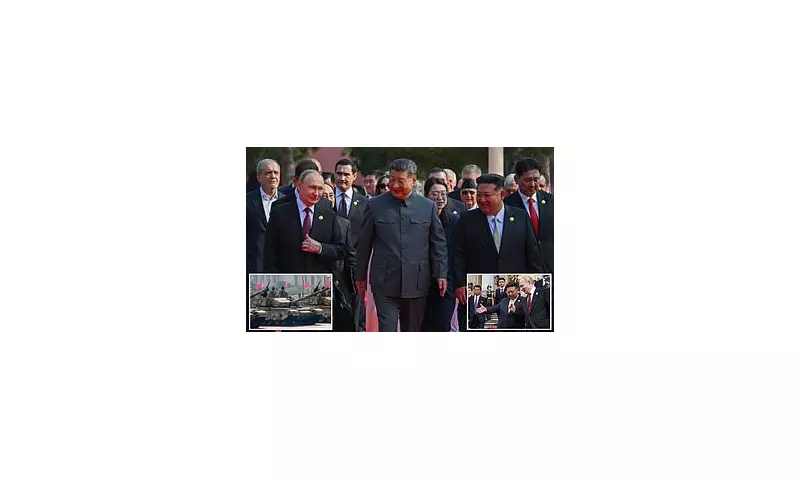
In a stark and ominous warning to the West, a leading Oxford historian has declared that the emerging alliance between the world's modern-day autocrats poses a threat even greater than that of the Nazis in the 1930s.
Professor Mark Almond's grave assessment highlights the deepening and increasingly public strategic partnership between Russian President Vladimir Putin, Chinese Premier Xi Jinping, and North Korean despot Kim Jong-un. This new 'axis of evil' is presenting a united front against Western democracies, with a combined military and economic power that demands immediate and serious attention.
A Coalition of Convenience and Coercion
Unlike the formal pacts of the Second World War era, this modern alliance is built on a foundation of mutual opportunism and a shared desire to dismantle the US-led world order. Professor Almond points to their recent collaborations as evidence of a dangerous shift.
'The Nazis had a pact but they were not able to draw on the resources of a vast economic power like China,' Almond stated, underscoring a key difference that makes this new threat uniquely perilous. The trio is now actively engaged in supporting each other's ambitions, from the war in Ukraine to provocations in the South China Sea and the Korean peninsula.
Resources on a Scale Never Seen Before
The professor's warning centres on the sheer scale of resources this axis can command. China's colossal industrial and technological base, combined with Russia's vast natural resources and nuclear arsenal, and North Korea's relentless production of conventional artillery and rogue military tactics, creates a multifaceted danger.
This partnership allows for the circumvention of international sanctions, enabling Putin's war machine to continue its assault on Ukraine with supplies from Pyongyang and Beijing. This cooperation, Almond argues, shows a chilling level of coordination that must be met with a unified and robust response from NATO and its allies.
A Call for Western Vigilance
The central message from Professor Almond is a call to action. He urges Western leaders to look past internal divisions and recognise the gravity of this coalescing threat. The comfort of the post-Cold War era is over, replaced by a new and volatile period of great power competition.
Failing to acknowledge the strength and intent of this alliance, he concludes, would be a catastrophic error of judgement—one with consequences far exceeding the miscalculations made with Hitler last century. The time for vigilance and strategic unity is now.





